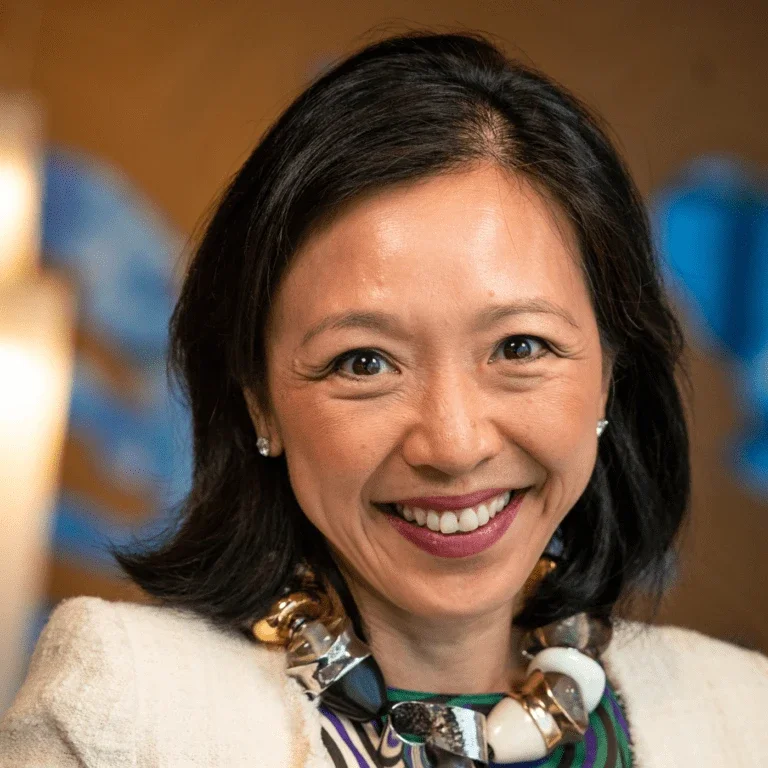As delivered via video on April 27, 2023
Konnichiwa and hello from The Rockefeller Foundation’s headquarters in New York City. My name is Elizabeth Yee, and I’m the Executive Vice President of programs here at the Foundation. I wanted to say thank you to our partners, the T7, the G7, and the ADB Institute for inviting us to participate here with you today, and grateful that my colleague, Deepali Khanna, can be there with you in person. While I wish I could be as well, I’m very grateful for the opportunity to share a few words with you in advance of you hearing from this distinguished panel. Today, the world is facing a number of different crises, from Covid-19 to climate change, to rising energy prices, to rising commodity prices. This is creating significant inequity in our global world order and requires us to really think about how we can come together as a global community to deliver on a more just, equitable, and green future as a planet. It’s really encouraging seeing how the groups are coming together to champion multilateralism, to think about how we can fight for a more representative world order, and really address much of the challenges that we need to ensure that emerging and less developed economies have a chance to be part of this and have a seat at the table.
The Rockefeller Foundation, for 110 years, has been committed to doing exactly the same as part of our efforts to make opportunity universal and sustainable. We empower policymakers around the globe to ensure that they have the means to invest in the scientific research and the innovations that we know we need in order to build a more equitable and just society. And what we do is we enhance individual and institutional capacities by making sure that we’re pursuing ideas and implementation against the big bets that we know humanity needs to support people and frontline communities. And so as a result, we’ve been engaging closely with the T7 and T20 communities to understand and learn and build our vision and help support those communities to achieve that vision. So last year, one of the things we did was we supported a report that revealed that in order to reach net zero emissions, global, public, and private sector, organizations needed to see annual investment flows of approximately $3.8 trillion by 2025. We also worked together with many partners to contribute to the G20-commissioned Independent Review Panel for the Capital Adequacy Frameworks, which made recommendations for boosting the investment capacity of the multilateral development banks.
That work is part of our larger effort to really help the world build a global financial system and new architecture that enables us to be, as a global community, fit for purpose in the 21st century. We need to accelerate public and private sector financing in order to ensure that we achieve the energy transitions and the societal transitions we know we need to do in order to build towards this more sustainable development. That need was echoed by the chairs of the T20 India and T7 Japan Ambassador Chinoy and Dean Sonobe, along with other prominent global executives and leaders, at a recent convening we held at our center in Bellagio, Italy, where we talked about building bridges between the G7 and the G20. That convening and this summit have the real potential to transform the global landscape and be able to help us deliver a global financial architecture that is more equitable and enables communities and emerging and developing economies to be part of the new green and inclusive global economy. So I thank you for your commitment to cause. I wish you an incredibly productive and inspired convening, and we look forward to partnering with you on the path ahead.
